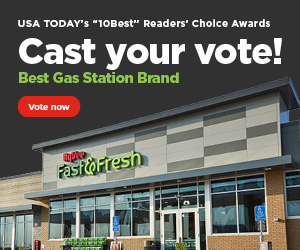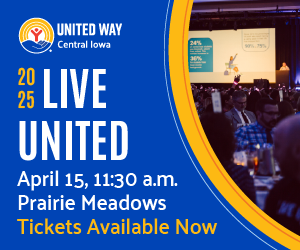Cheers! A docuseries about the history of the Blazing Saddle premiered this summer. Photo: “The Last American Gay Bar”
Writer: Michael Morain
In 1982, a new TV series called “Cheers” invited viewers to pull up a chair at a Boston bar where “everybody knows your name and they’re always glad you came.”
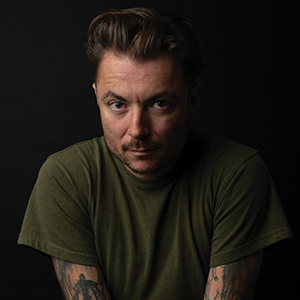
Just a year later, the Blazing Saddle opened its doors in the East Village here in Des Moines, back when the neighborhood was still pretty sketchy. It wasn’t much to look at — some yellow formica tables and secondhand chairs — but it offered gay guys a comfortable place to relax and be themselves at a time when that was riskier than it is today. It was a place where everybody knew your name — or, at least, the one you used for a night on the town.
The story of the Saddle and its 40-year role in local LGBTQ history is the subject of an eye-opening new documentary, “The Last American Gay Bar,” which premiered this summer at the Varsity Cinema and is now available on OUTtv. In six 20-minute episodes, director Kristian Day focuses a local lens on the Stonewall rebellion, the disco era, the AIDS crisis, the military’s “Don’t Ask, Don’t Tell” policy, the push for marriage equality and the recent backlash against transgender rights.
The idea started, as many do, in a barber shop. Day was getting a haircut a couple of years ago when his barber mentioned that he used to drive a taxi in the early ’70s and often picked up riders downtown at a gay bar called the Blue Goose.
The story prompted Day to write a Cityview column about other long-gone local gay bars, like the P&S Lounge (named for Peggy and Shirley) and the Country Cove. Some of the establishments showed up in the annual Damron Men’s Travel Guide, a paperback directory of gay bars across the country in an era before the internet, dating apps and handy Google Maps.
As Day learned more, he decided to make a docuseries and successfully pitched it to an agent. He initially planned to include a few other cities — Omaha, Kansas City, Corpus Christi — but eventually scaled back. “If we stay here,” he figured, “we can give all the love to Des Moines and the Saddle.”
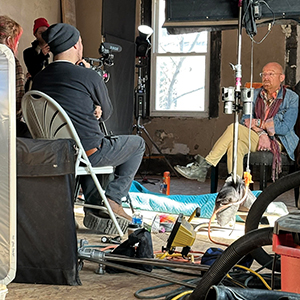
“You hear stories about [LGBTQ] people moving to larger cities, out of red states,” he said. “But what do you do when you don’t move away? When you can’t?”
Many of the locals Day’s team interviewed told similar stories about their school days, their military service in the Vietnam War, their first jobs and how they came out to their family.
“There’s a common thread,” said Micaela Cashman, the series’ producer and writer. “When they’d come out to their parents, for the most part, their parents were incredibly supportive, which surprised me. Those were some of the most heartwarming stories I’ve ever heard.”
And those whose parents weren’t supportive, well, they had Mongo. The Saddle’s tough-love owner, Bob “Mongo” Eikleberry is “like a dad to 90% of this crowd,” one of the regulars told the film crew. A vet himself, Mongo was a steady presence behind the bar and a champion listener. He kept the bar open during holidays and served up huge meals for everyone who needed a home away from home. When the AIDS crisis ramped up in the ’80s and early ’90s, he always kept three suits clean in his closet, ready for funerals.
Over the decades, the Saddle became a popular spot for the full LGBTQ spectrum. It turned into a community hub for various causes and nonprofit groups. It became a place to celebrate, to commiserate, to raise funds for the next project. That’s one reason it has endured while other bars have opened and closed.
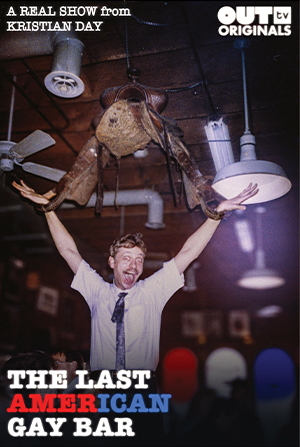 “It’ll just keep going,” Mongo said. “Every year at Pride we get younger and younger people. They’re the future leaders. I want to see more of these kids get politically involved.”
“It’ll just keep going,” Mongo said. “Every year at Pride we get younger and younger people. They’re the future leaders. I want to see more of these kids get politically involved.”
At the Varsity premiere, during the citywide Pride festivities in June, many of the Saddle’s earliest regulars filed into the theater to see their collective story. Some sat with their husbands, something they never would have imagined when the bar opened more than 40 years ago.
As the screen lit up with familiar faces — older, with a few more wrinkles — you could almost hear the “Cheers” theme song in the background. You wanna be where you can see our troubles are all the same. You wanna be where everybody knows your name.
But leave it to Mongo to keep things grounded. As he notes in the fifth episode, “I chose community over myself. Some of them are total scuzzbags, but nobody’s perfect — except for me.”
How to watch it
“The Last American Gay Bar” is on OUTtv. All six episodes can be streamed on the OUTtvGo app or on Apple TV, Roku and Amazon.




